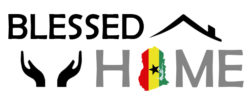People:
Ghana is known for its friendly people. Everywhere in Ghana, the words “You are invited” show their hospitality. Whoever cooks or eats with this phrase invites people from his community to share in his wealth. Hospitality is a core value and that makes a visit to Ghana a dip in a warm bath. Ghanaians are rightly proud of it. The country’s official language is English, but indigenous languages are widely spoken. For many Ghanaians, official English is their second or perhaps third language. The average life expectancy is sixty years. Ghana has about 26 million inhabitants.
History:
Ghana is located in West Africa and borders the Gulf of Guinea. West of Ghana is Ivory Coast, Burkina Faso to the north, Togo to the east and the Atlantic Ocean to the south. The largest river in Ghana is the Volta. Kwame Nkrumah became the first president in Ghana in 1960, he had different ideas about how Ghana should become. His ideas appealed to everyone, which created one political party, the CPP. In the end, Nkrumah did not make it in Ghana, his behavior and the fact that the economy collapsed caused him to leave as president in 1966. Ghana is a country where in the past, among others, the Dutch have left their footprints. Unfortunately not always in a positive sense. The history of the slave trade is still visible in Ghana. Several fortresses can be found along the coast. A visit to this is very impressive. Ghana has been independent from the United Kingdom since 1957. This is still widely celebrated annually.
Poverty:
Ghana is rich in raw materials and natural resources, but still thirty percent of the population lives below the poverty line. This means that they cannot provide for the basic needs such as clothing, clean drinking water, good housing and sufficient food. In addition, logging has caused deforestation and desertification. The mining of gold also puts a heavy burden on the environment. The groundwater is becoming polluted and fertile arable land has to give way to digging gold mines. Most small farmers are the victims of this practise.
Religion:
The vast majority of Ghanaians are Christian. Religion is often literally on the street in Ghana. Shops, hairdressers, car workshops, schools, everything has a name with God or Jesus in it. This is mainly in the south of Ghana. Many Muslims live in the north. Religion does not cause division in Ghana.
